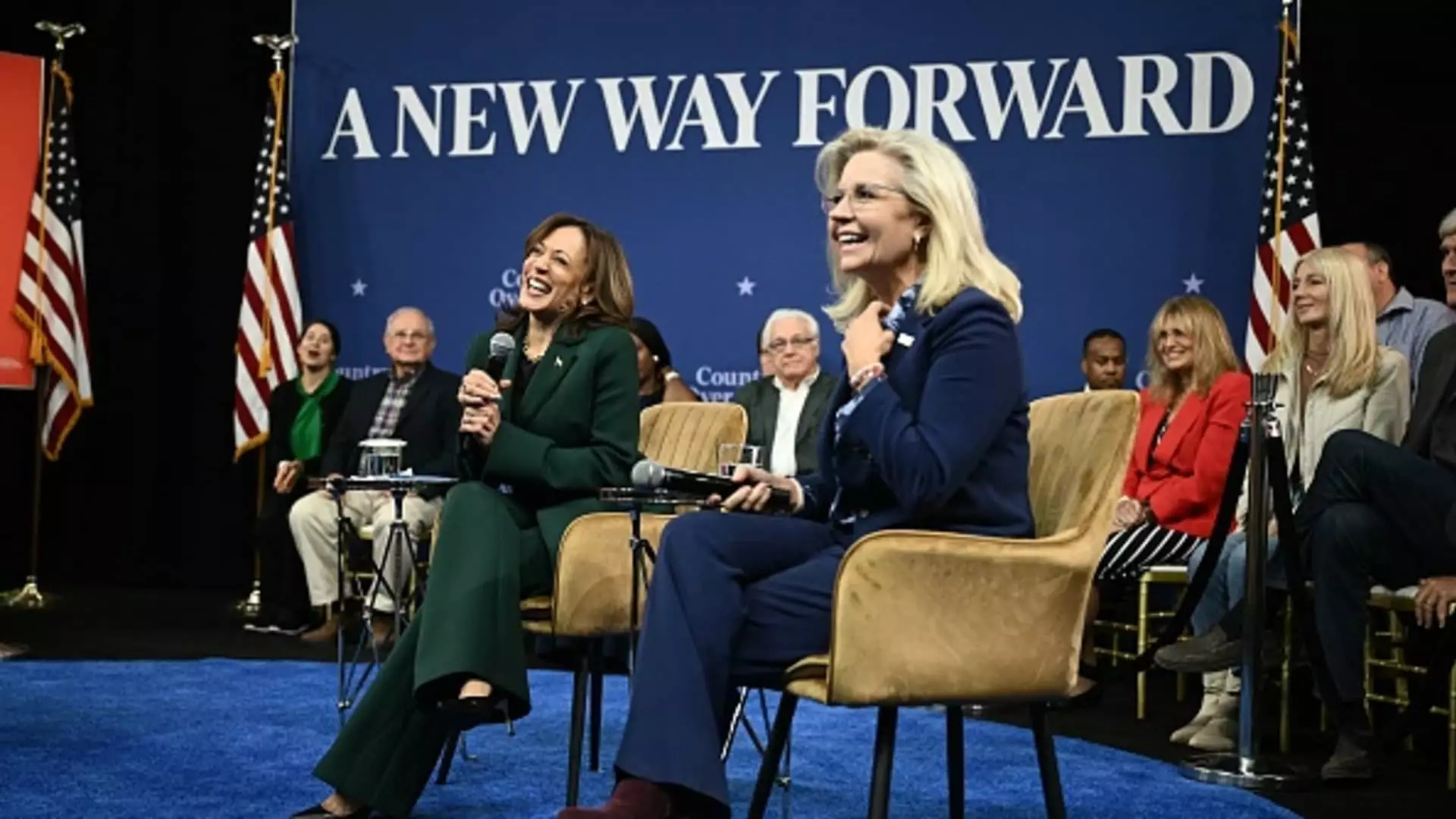In a striking display of bipartisanship, Vice President Kamala Harris and former Republican Representative Liz Cheney engaged in dialogues across crucial battleground states, including Pennsylvania, Michigan, and Wisconsin, on a recent Monday. This rare coalition, formed out of shared principles rather than party affiliation, sets the stage for an intriguing political landscape as the election unfolds. At the heart of these discussions was Cheney’s appeal to the moral compass of voters, underlining the notion that personal conscience should take precedence over party loyalty.
The comment made by Cheney in Birmingham, Michigan—”It’s not about party, it’s about right and wrong”—resonated deeply with a segment of the electorate that may be feeling disillusioned with the current political regime. The backdrop of these conversations highlights a growing sentiment among some Republicans who are grappling with their identity in a party increasingly dominated by Trump’s rhetoric and policies. Cheney’s assertion that voters can remain true to their conscience, free of societal pressures, encapsulates a pivotal moment in American politics, where choices transcend traditional partisan lines.
Cheney, aligning herself with conservative values, boldly backed Harris by discussing her commitment to the Constitution. During her appearance in Malvern, Pennsylvania, she articulated that the essence of conservatism is fidelity to constitutional principles—a sentiment that sharply contrasts with the actions of many within the Republican Party who have prioritized allegiance to Trump over democratic norms. Cheney’s earlier statements underline the weight of this endorsement, specifying that the electoral decision is a matter of upholding the Constitution against figures perceived as undermining it.
Additionally, Cheney critically addressed the recent state-level laws limiting women’s reproductive rights, declaring these restrictions as unsustainable. Her stance marks a significant shift for a conservative figure, representing a potential fracture within the Republican base regarding women’s rights. In the shadow of the Supreme Court’s striking down of Roe v. Wade, Cheney’s views may resonate with some Republican constituents who champion a more moderate approach to this divisive issue.
As the Harris campaign actively seeks to engage disenchanted Republicans, it has initiated the “Republicans for Harris” group—an effort designed to amplify the voices of individuals like Cheney and others who prioritize the integrity of democratic processes over party allegiance. Harris’s promise to include a Republican in her cabinet further emphasizes her intention to foster a government that values diverse perspectives and ideas, reinforcing the necessity of having rigorous debates grounded in factual evidence.
Harris’s assertion of the importance of a healthy two-party system reflects a yearning among many voters for constructive dialogue, starkly contrasting with the growing polarization within contemporary political discourse. By uplifting Cheney’s endorsement, Harris may be paving the way for a broader coalition of voters who are ready to defy tribal political norms.
Amidst domestic issues, Cheney and Harris simultaneously delved into foreign affairs—another realm where their views appear aligned. Cheney’s critique of Trump’s isolationist stance underscores a shared understanding of national security and America’s role on the global stage. Her warnings about the potential unraveling of NATO if Trump were to return to power starkly highlight the dangers of foreign policy that neglects international alliances.
Cheney’s focus on the implications of Trump’s skepticism towards NATO not only depicts a grave concern for the country’s security but also reiterates the importance of alliances for maintaining global stability. This aspect of their dialogue introduces another layer to Harris’s platform, as she continues to advocate for robust international partnerships, including unwavering support for Ukraine amidst Russian aggression.
The collaboration between Harris and Cheney embodies a pivotal moment in political history, where personal ethics and democratic integrity have the potential to unite across traditional party lines. As both figures navigate the complexities of their respective futures in an evolving political landscape, their coalition serves as a beacon for those advocating for reasoned discourse and civic responsibility.
This alliance highlights that, in a time of divisiveness, there are still parties willing to prioritize the greater good over mere political gain. In an era where voters are often forced to choose between party loyalty and personal values, Harris and Cheney’s partnership offers a refreshing perspective, fostering hope for renewed commitment to the founding principles of the nation.

